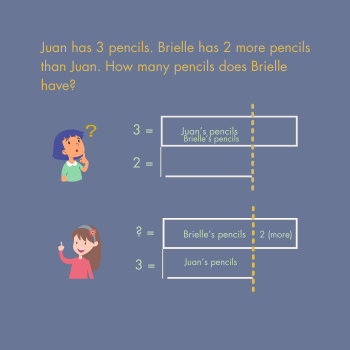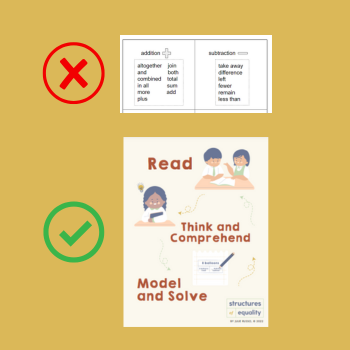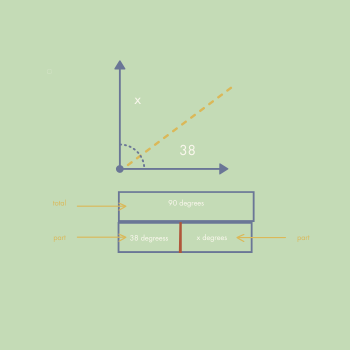
See how REG and Math Practice Standard 2 work together to help students comprehend word problems, bridging abstract reasoning and real-world problem solving.
February 5, 2025

Are your students focusing too much on choosing the ‘right’ structure? Learn how emphasizing the math main idea with Structures of Equality can change how students approach and solve math word problems.
January 29, 2025

If a problem could be modeled with REG or a Compare structure, which is the right one?
January 22, 2025

Choosing the right structure sometimes creates confusion for students and teachers alike. PET? REG? How do you decide?
January 15, 2025

SoE was founded on the idea of providing meaningful mathematics instruction for all students. Learn how all students are positively impacted when we give all kids the same opportunities.
January 8, 2025

Accuracy in visual math representations helps students understand the relationships between quantities. When should you hold students accountable?
December 18, 2024

Discover how using real-world contexts, structured discussions, and visual models can help students develop a deeper understanding of math concepts
December 11, 2024

Learn strategies to support multilingual learners in math by building on prior knowledge, fostering discussion-rich classrooms, and making vocabulary accessible.
December 4, 2024

Teaching K-3 students how to compose and decompose numbers sets the foundation for more complex math. Learn how to use manipulatives, visual representations, and real-life examples to make these concepts stick.
November 27, 2024

Struggling to help students with word problems? 1st-grade teacher Matt Spirakus shares how Structures of Equality transformed his approach.
November 20, 2024

Use student mistakes to your advantage. See why wrong answers in math are a starting point for deeper understanding and sense-making.
November 13, 2024

Word problems and geometry might seem unrelated, but with the Parts Equal Total (PET) structure, students can bridge the gap.